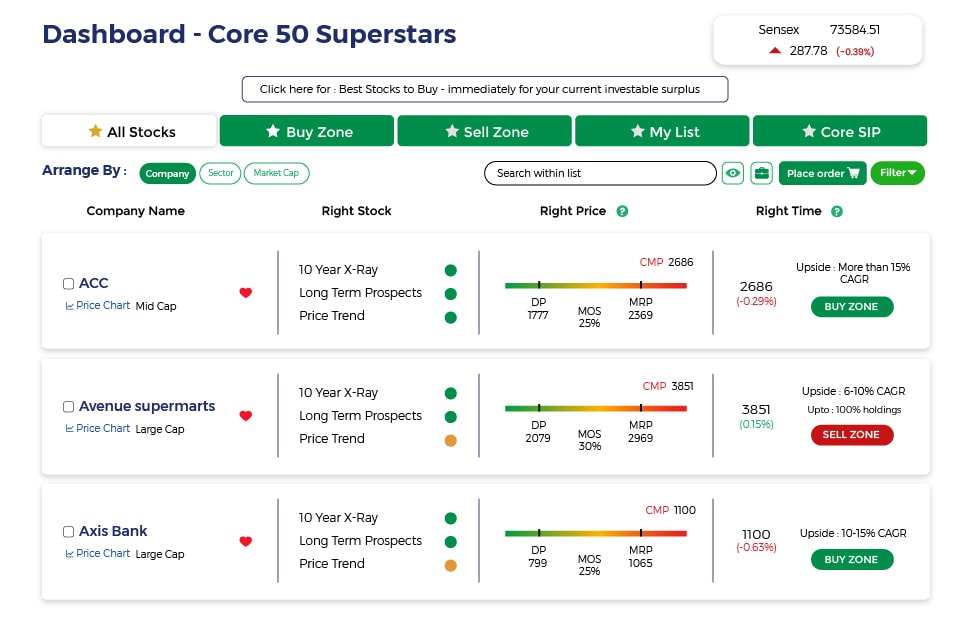Investing for the long term is one of the core principles of Moneyworks4me. We believe that the best way to create wealth from the stock market is to buy quality companies at reasonable prices and hold them for as long as they remain fundamentally strong. This approach allows us to benefit from the power of compounding, avoid unnecessary taxes and transaction costs, and reduce the emotional stress of market fluctuations. You can consider selling a stock that the market offers an irrationally high price and the future returns are likely to be poor from that price point. You should replace it with a fundamentally strong stock that is available at a reasonable price.
However, many investors find it hard to stick to this strategy, especially when they see their portfolio value fluctuate due to short-term noise. Short-term noise refers to any factor that affects the stock price in the short run, but does not have a lasting impact on the company's intrinsic value. Examples of short-term noise include market sentiment, some macroeconomic events, political developments, quarterly results, analyst ratings, media reports, etc.
These factors can cause the stock price to fluctuate significantly, creating an illusion of overvaluation or undervaluation. Some investors may be tempted to exit their holdings when they see the price go up too much or down too much, hoping to buy back later at a better price. However, this is a risky and futile strategy, as it involves timing the market, which is very difficult to do consistently.
The problem with timing the market is that you have to be right twice: when to sell and when to buy. You may sell at a high price, but miss out on further upside if the stock continues to rise. You may buy at a low price but suffer further losses if the stock continues to fall. You may also incur taxes and transaction costs that eat into your returns. Moreover, you may lose sight of the long-term value of the company and get swayed by short-term noise.
The alternative strategy is to ignore the short-term noise and buy or sell a stock based on its intrinsic or fair value, i.e. be anchored to the fair value and not to the market highs or lows. You should buy a stock when it is trading below its fair value and only sell a stock when it is trading above its fair value or when its fundamentals deteriorate. This way, you can avoid overpaying or underselling a stock, and capture the full potential of its growth. Yes, the fair value is an estimate but it is grounded in fundamentals and is a better anchor for price decisions.
By investing for the long-term and ignoring the short-term noise, you can also enjoy other benefits such as:
Peace of mind:
You don't have to worry about daily price movements or quarterly results. You can sleep well at night knowing that you own quality companies that will grow over time.
Time saving:
You don't have to spend hours researching or tracking stocks. You can use your time for other productive or enjoyable activities.
Tax efficiency:
You can defer taxes until you sell your stocks, and pay lower taxes on long-term capital gains than on short-term capital gains.
Compounding effect:
Owning shares of high-quality growing companies over long periods of time means you benefit when they reinvest profits that lead to higher future profits and hence increase in stock prices. This ensures you enjoy the benefits of compounding.
Ready to take control of your long-term investments and make informed decisions? Join Moneyworks4me today and access unbiased research, powerful tools, and real-time updates to help you build a strong portfolio.
We hope that this blog post has helped you understand why we recommend investing for the long term and why you should refrain from exiting your holdings based on short-term noise.
If you have any questions or feedback, please feel free to contact us.
Happy investing!
...
Already have an account? Log in
Want complete access
to this story?
Register Now For Free!
Also get more expert insights, QVPT ratings of 3500+ stocks, Stocks
Screener and much more on Registering.







 Download APP
Download APP




















Comment Your Thoughts: